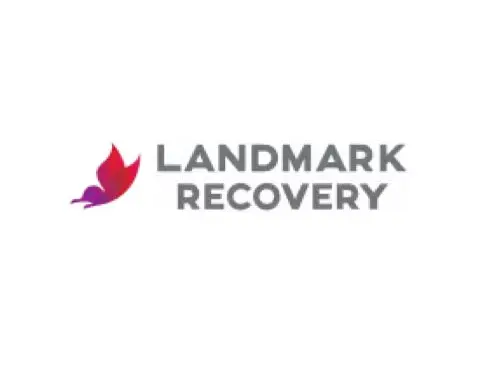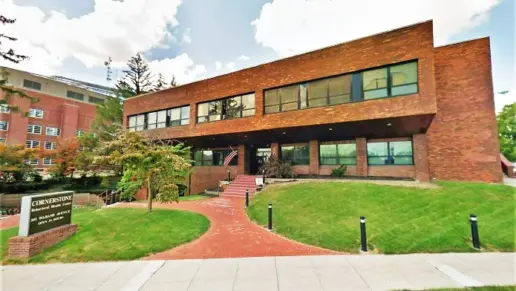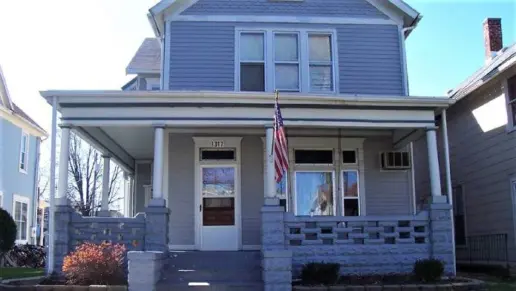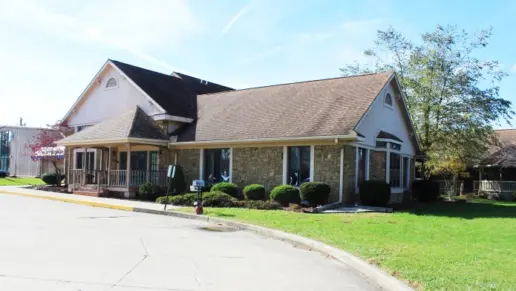About Praxis of Norfolk by Landmark Recovery
Praxis of Carmel by Landmark Recovery is a drug and alcohol rehab for men in Carmel, Indiana. They have medically supervised detox, dual diagnosis care, and inpatient, outpatient, and aftercare services. There’s also a track for military personnel and veterans. Medicaid is accepted.
Clients undergoing detox receive round the clock medical supervision. FDA approved meds may be given to help reduce withdrawal symptoms. You’ll also receive therapy to help start your recovery. Detox takes about 7-13 days. For those struggling with opioids or alcohol use, medication assisted treatment may be available to manage cravings during treatment.
The inpatient program allows you to focus on your recovery in a home like environment with amenities. You might get a private room and can access their onsite fitness and recreational centers. In terms of treatment, you’ll participate in individual, group, and family therapy, as well as education and life skills training to boost your health. Creative arts, recreational programs, and healthy ways to cope are available.
The outpatient and aftercare services at Praxis of Carmel are designed to promote your sustained recovery. Depending on your needs, you may need partial hospitalization, intensive outpatient, standard outpatient, and aftercare programs. This step down approach allows you to recover at home and work towards independent living as you go back to your home, family and job. You might also get peer coaching, career counseling, 12 Step programs, and referrals for social services.
Praxis of Norfolk by Landmark Recovery is accredited by the Joint Commission and certified by LegitScript so you know they meet a standard level of care.
Latest Reviews
Rehab Score
Gallery
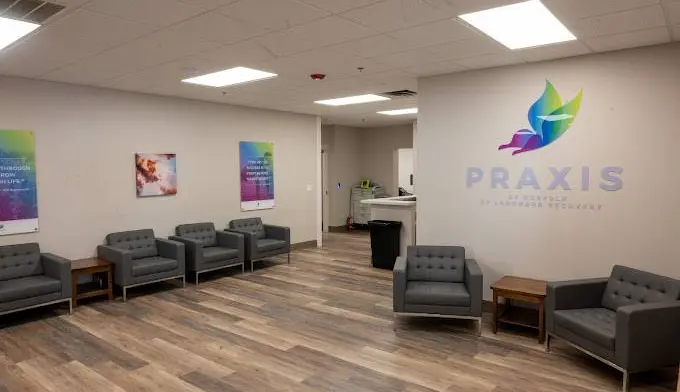
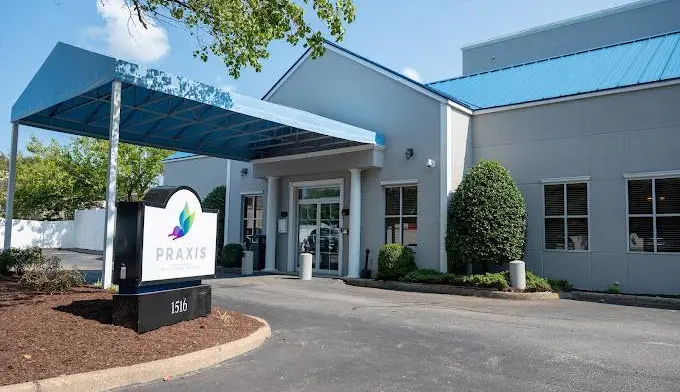
Location
Other Forms of Payment
Private insurance refers to any kind of healthcare coverage that isn't from the state or federal government. This includes individual and family plans offered by an employer or purchased from the Insurance Marketplace. Every plan will have different requirements and out of pocket costs so be sure to get the full details before you start treatment.
Self-pay involves paying for treatment out of your own pocket. You can use savings or credit, get a personal loan, or receive help from family and friends to fund your treatment. If you don't have insurance or your insurance plan doesn't cover a specific program, self-pay can help ensure you still get the care you need.
Addiction Treatments
Levels of Care
Treatments
The goal of treatment for alcoholism is abstinence. Those with poor social support, poor motivation, or psychiatric disorders tend to relapse within a few years of treatment. For these people, success is measured by longer periods of abstinence, reduced use of alcohol, better health, and improved social functioning. Recovery and Maintenance are usually based on 12 step programs and AA meetings.
For long-term recovery from drug addiction, drug rehab in Indiana is often key. This treatment gives individuals who are struggling with a substance use disorder the tools to manage their disorder and achieve long-term sobriety.
A combined mental health and substance abuse rehab has the staff and resources available to handle individuals with both mental health and substance abuse issues. It can be challenging to determine where a specific symptom stems from (a mental health issue or an issue related to substance abuse), so mental health and substance abuse professionals are helpful in detangling symptoms and keeping treatment on track.
Programs

Clinical Services
Group therapy is any therapeutic work that happens in a group (not one-on-one). There are a number of different group therapy modalities, including support groups, experiential therapy, psycho-education, and more. Group therapy involves treatment as well as processing interaction between group members.
In individual therapy, a patient meets one-on-one with a trained psychologist or counselor. Therapy is a pivotal part of effective substance abuse treatment, as it often covers root causes of addiction, including challenges faced by the patient in their social, family, and work/school life.
During trauma therapy in Indiana, your therapist helps you process traumatic experiences and learn how they affect your emotional, mental, and physical responses. You learn effective coping strategies that help to reduce the symptoms and improve your mental health and well being.
The goal of family therapy in Indiana is to empower family members to effectively support their loved one's recovery. Therapists work with family members to develop the skills needed to manage stress and resolve conflicts successfully. This fosters a positive environment that is conducive to long term sobriety.
Recreational therapy integrates structured activities into a holistic treatment program to help promote your physical and mental health and well being. You might engage in sports, creative arts, or outdoor adventures as a positive outlet for your stress and emotions. This helps you develop new interests and build a supportive network that helps you maintain long term sobriety.
Creative arts therapy opens an alternative pathway to emotional health. For those who find it difficult to talk about their feelings, it provides a new way to express feelings and thoughts. Options include poetry, music, journaling, dance, and painting.
Amenities
-
Residential Setting
Accreditations

The Joint Commission, formerly known as JCAHO, is a nonprofit organization that accredits rehab organizations and programs. Founded in 1951, the Joint Commision's mission is to improve the quality of patient care and demonstrating the quality of patient care.
Joint Commission Accreditation: Yes

LegitScript has reviewed Praxis of Norfolk by Landmark Recovery as part of their certification program, and has determined that it meets the LegitScript standards for legality, safety and transparency.
LegitScript verified in November 2019
Contact Information
13594 North Meridian Street
Carmel IN, 46032
